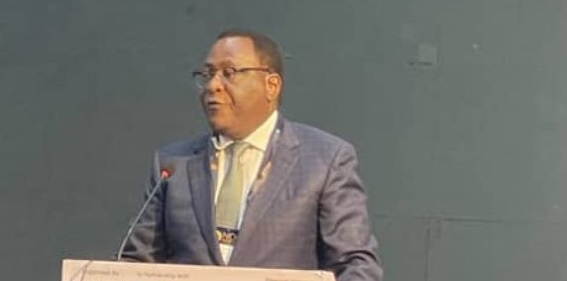
To minimise the effect of rate hike on companies and business operations, there is need for government to focus more on policies that will unlock infrastructure.
According to experts who spoke in an chat with The Guardian, this would also help to boost existing firms and attract new businesses into the country.
The experts noted that the impact of rate hike was devastating on businesses partly due to the deplorable state of nation’s infrastructure and other impediments threatening the ease of doing business in Nigeria.
They expressed worry on the impact of recent rate hike and parlous infrastructure on companies operating in the country, resulting in high cost of operations, shrinking profit margin and total collapse of businesses in Nigeria, especially the SMEs.
According to them, the trend has worsened nation’s slow economic growth as seen in various sectors in the last few years.
For instance, GDP growth in the manufacturing sector in the first quarter of 2023 was 1.61 per cent (year-on-year), lower than 6.93 per cent achieved in 2022. Also the figure in 2022 was lower than 31.6 per cent in 2021.
The experts argued that the proportion of Nigeria living in poverty may continue to if government fails to tackle these issues within the shortest period of time.
Managing Director of Academy Press Plc, Olugbenga Ladipo said: “There is need to improve infrastructure and create conducive environment for business to operate.There is need for discipline and security too. Also, common funds should be well utilised so that we can have good competition that is merit based.
“I think there are a lot of wastages in government. Money spent do not receive appropriate value. It is also appropriate to patronise Nigeria made goods.
The rate hike has started already on existing loan facilities. Cost of doing business is just increasing from all angles. I do not know how productive sectors will survive. Close downs and employment loss will happen.”
Vice President of Highcap Securities Limited, Imafidon Adonri said to save companies from collapse and minimise impact of rate hike on businesses, Nigeria needed to develop infrastructure and adopt right regulatory framework.
“We need investment in infrastructure, we must continue to ease the difficulties of doing business. Government must sustain the growth of the economy to make sure that the economy is growing steadily.
“The inflation means that the supply side of economy needs to be adequately taken care of so that more supply comes into the economy to close the gap
between supply and demand and attracting more supply means that government must address all impediments to doing business especially infrastructure and that is what will bring down inflation.”
Chief Research Officer of InvestData Consulting, Ambrose Omordion said major investment in infrastructure are needed to match with government plans on ease of doing business.
Furthermore, he pointed out that the funding structure for various infrastructure projects will require that government taps into private capital to fund the projects.
In a move to curb inflation and stabilise the economy, the Central Bank of Nigeria (CBN) had last month increased the monetary policy rate (MPR) by 400 basis points to 22.75 per cent from the previous rate of 18.75 per cent.
In addition, experts had predicted that the re-enforcement of the CBN’s limit on the loans-to deposits (LDR) macro-prudential ratio for deposit money banks (DMBs) and the hike in CRR to 45.0 per cent from 32.0 per cent will continue to compel commercial banks to generate risky assets over the short to medium term.





